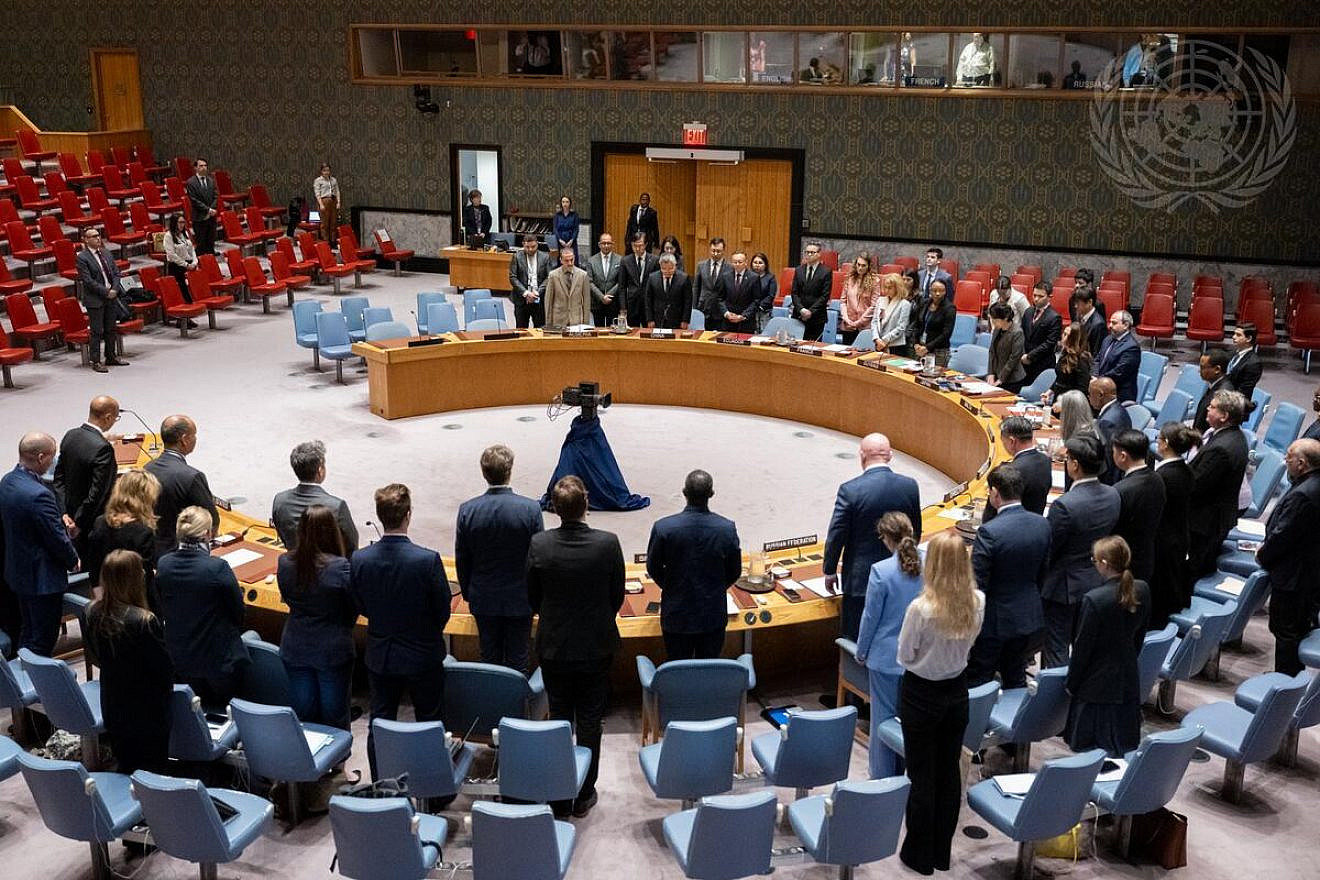The United Nations Security Council was set to meet on Tuesday afternoon in an emergency session to discuss Israel’s Sunday night airstrike on Hamas terrorists in southern Gaza, which resulted in tens of civilian casualties. Council members Algeria and Slovenia requested the meeting, which will be held behind closed doors.
The Security Council has typically held an emergency session following any significant Israeli action during the war. Tuesday’s meeting is unlikely to yield any definitive action from the council, though sources indicate Algeria and other members will push for the council to enforce a recent International Court of Justice ruling regarding Israeli operations in Rafah.
The Security Council serves as the enforcement mechanism for ICJ decisions.
Sunday’s strike, which eliminated two senior Hamas officials, has brought expected international condemnation, with the Hamas-run Gaza Health Ministry claiming 45 civilians were killed.
Hours earlier, Hamas had fired eight rockets from Rafah toward Tel Aviv, marking the first long-range attacks on the central Israeli city since January.
Rafah serves as the final Gazan stronghold for Hamas, and has also served as a place of refuge for Gazans evacuated from other areas of the enclave as Israel carried out military operations earlier in the war.
Israel has safely evacuated around one million Gazans from Rafah over the last few weeks ahead of its operation in the city.
Israeli Prime Minister Benjamin Netanyahu called Sunday’s strike a “tragic error.” The circumstances remain unclear, though according to ABC News, Israel told U.S. officials the incident was apparently caused by missile shrapnel igniting a fuel tank some 330 feet from the targeted area.
Tor Wennesland, the U.N. special coordinator for the Middle East peace process, said in a statement on Monday that he was “deeply troubled by the deaths of so many women and children in an area where people have sought shelter.”
Sunday’s strike occurred outside the Al Mawasi humanitarian zone established by the Israeli military.
Wennesland called upon Israel “to conduct a thorough and transparent investigation into this incident, hold those responsible for any wrongdoing to account, and take immediate steps to better protect civilians.”
Qatar said Israel’s strike could “hinder” ceasefire negotiations set to resume today.
The strike came days after the International Court of Justice issued a ruling that Israel must “immediately halt its military offensive and any other action in the Rafah governorate which may inflict on the Palestinian group in Gaza conditions of life that could bring about its physical destruction in whole or in part.”
The wording of the ruling is ambiguous, with some claiming it requires Israel to halt the operation in Rafah, while others, including some ICJ judges, have interpreted it to mean that the operation must not violate the Genocide Convention.























